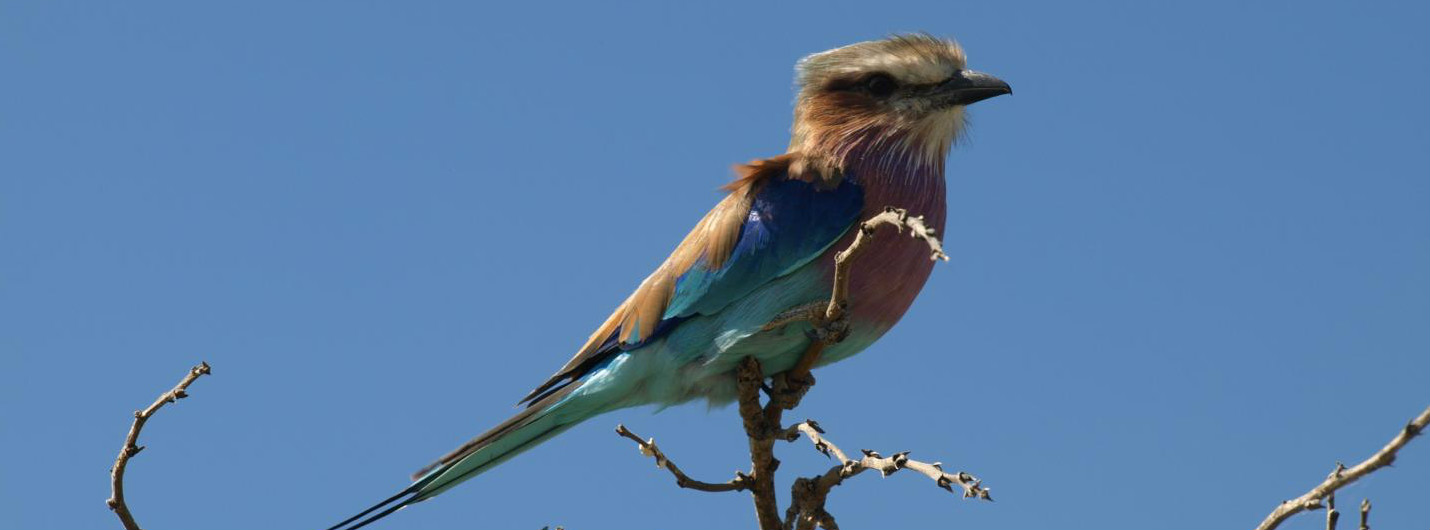Species endangered by agricultural landscapes

According to a research led by the University of Exeter, in which bird populations across cultivated mango orchards and natural habitats in the Kruger to Canyons Biosphere region in South Africa was monitored, replacing a natural habitat with a agricultural landscape can contribute to a substantial decline in the species living within the region.
It is typical for people to think that agricultural landscape could provide support for additional bird species complementary to those living in the natural habitat in a particular region. Scientists from the University of Exeter were also aiming at ascertaining whether agriculture could add novel habitat elements to bird species. However, to their utter surprise, there was actually a loss of 35% of the bird species within the farmed land.
In the natural habitat, there are suitable places birds to live. Agricultural landscapes do not provide such habitat elements. Same was the case for cultivated mango orchards in the Kruger to Canyons Biosphere region that were covered in the research. In the words of Dr Frank Van Veen of the Centre for Ecology and Conservation at the University of Exeter, "Mango orchards are missing the low level woody scrub found in natural vegetation and the birds missing from the orchards are exactly those that have a life-style that depends on this layer of vegetation. These results show that simply measuring the vertical vegetation structure can help to predict negative effects of agriculture on biodiversity and suggest ways to mitigate these."
According to Dr. Frank Van Veen, the loss of richness of bird species has direct influence on the preservation and provision of the ecosystem; to be more specific, pest control, seed dispersal and pollination. He places great importance on management strategies in countries like South Africa aimed at striking a balance between crop productivity and biodiversity conservation.
The research team conducted 150 counts each at both natural habitat and mango orchard locations and measured aspects of habitat structure. Across all 300 survey points, a total of 14 278 birds representing 151 species were observed. The results indicate that the lack of low level woody scrub in the mango orchards could account for the absence of some 26 insectivorous and nectarivorous species.
The diversity and abundance of bird species were both greater in natural habitats than in mango orchards. Approximately a third of species recorded in the natural sites were unique to this habitat, but there were no species unique to mango orchards.
The research findings published in the Landscape Ecology emphasize the value of assessing habitats prior to land use change to predict the impact of agriculture on biodiversity. According to researchers, farmland is a poor substitute to natural habitats. However, they also opined that simple improvements could contribute to biodiversity conservation.
Source: University of Exeter
Reference:
- "Response of avian diversity to habitat modification can be predicted from life-history traits and ecological attributes" – Yvette C. Ehlers Smith, David A. Ehlers Smith, Colleen L. Seymour, Elisa Thébault, F. J. Frank van Veen – Landscape Ecology – DOI 10.1007/s10980-015-0172-x
Featured image: The lilac breasted roller, one of the species recorded in the study that is relatively rare in modified habitat, while it is very common for example in nearby Kruger National Park. Image credit: Frank van Veen.

Commenting rules and guidelines
We value the thoughts and opinions of our readers and welcome healthy discussions on our website. In order to maintain a respectful and positive community, we ask that all commenters follow these rules:
We reserve the right to remove any comments that violate these rules. By commenting on our website, you agree to abide by these guidelines. Thank you for helping to create a positive and welcoming environment for all.